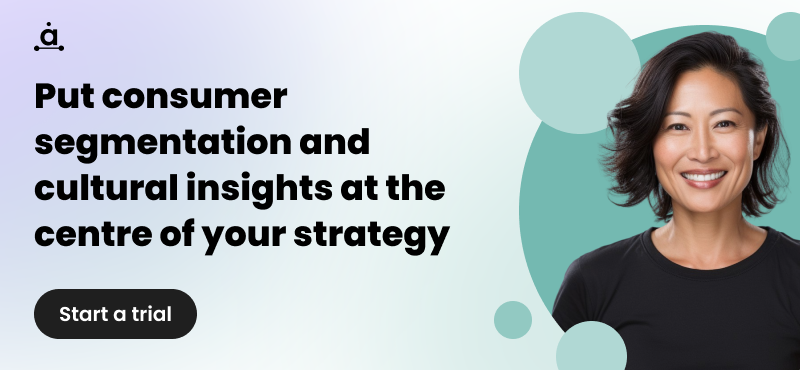L'empathie dans le marketing [partie 1] : Comment la connaissance de votre public favorise l'empathie
Lors de l'épidémie initiale de COVID-19 au début de l'année 2020, le secteur des soins de santé a connu une grave pénurie d'équipements d'EPI. Consciente de ce besoin urgent, la société Barbour a immédiatement répondu à l'appel, Barbour a immédiatement répondu à l'appel. La marque britannique a commencé à utiliser son usine de South Shields pour produire des blouses jetables pour les organismes locaux du NHS, à raison de 1 000 à 1 500 pièces par jour.
Sur la page page Facebook de Barbourdes commentaires positifs et réconfortants ont commencé à affluer de tout le Royaume-Uni. "C'est la raison pour laquelle ma famille a continué à soutenir votre entreprise au fil des générations", a déclaré l'un des commentateurs. "Une raison de plus de continuer à acheter des produits de la grande marque britannique", a déclaré un autre.
Cela montre que l'empathie est très utile lorsque vous essayez d'établir un lien authentique avec votre public et de le fidéliser. Montrez que vous vous souciez des autres et vos clients s'en soucieront en retour. Les spécialistes du marketing qui l'ont compris commencent à réorienter leurs efforts et à placer l'empathie au centre de leurs préoccupations. l'empathie au centre de leurs messages marketing.
Pour approfondir ce sujet, nous avons élaboré un guide complet en trois parties, basé sur les idées et les expériences de plus de 150 professionnels. Nous allons maintenant nous plonger dans la première partie de ce guide.
Qu'est-ce que l'empathie en marketing ?
L'importance de l'empathie dans le marketing
- Comprendre les sentiments du public
- Répondre aux besoins des consommateurs
- Conclure plus de ventes
- Humaniser votre marque et votre message
- Établir une véritable connexion
- Instaurer la confiance
- Susciter la loyauté
- Acquérir un avantage concurrentiel
- Avoir un impact durable
Qu'est-ce que l'empathie en marketing ?
Selon une étude de étude de Forrester Consultingla façon dont les gens ressentent une marque a 1,5 fois plus d'impact sur les résultats commerciaux positifs que ce qu'ils pensent de la marque. Le lien émotionnel qu'ils entretiennent avec la marque les rend plus enclins à acheter, à rester fidèles et à défendre la marque.

L'empathie est le moteur de cette connexion émotionnelle. "L'une des premières leçons que nous avons apprises en marketing est que les gens achètent des émotions, pas des produits", explique Kami Turky, responsable du marketing chez Solar Energy Hackers. Hackers de l'énergie solaire. "Peu importe que vous ayez le meilleur produit au monde, si vous ne faites pas preuve d'empathie, les gens ne vous feront pas confiance et ne vous donneront pas leur argent."
Mais qu'est-ce que l'empathie ? Et que signifie-t-elle dans le contexte du marketing ? Lacy Summers, CMO de Crush the PM Examexplique que l'empathie est "la capacité de reconnaître et de comprendre les sentiments d'autrui, ainsi que la capacité d'imaginer ce que les autres pensent ou ressentent". L'empathie est une technique qui permet de mieux connaître les points d'attache de vos clients afin que votre marque, votre produit ou votre service puisse apporter une plus grande valeur ajoutée de manière efficace et pertinente.
Selon Nathan Hughes, responsable du marketing numérique et du référencement chez Diggity Marketingle marketing empathique est une stratégie basée sur la création de contenu. Il s'adresse aux gens et suscite un sentiment de compréhension et d'empathie chez le consommateur. Il est essentiel d'être sensible à la réalité du public tout en renforçant les ressources de l'entreprise et en ajoutant de la valeur dans le domaine du marketing empathique."
L'importance de l'empathie dans le marketing
Voici un examen plus approfondi des différentes façons dont le marketing empathique profite à votre entreprise :
Comprendre les sentiments du public
L'empathie consiste à se mettre à la place du client, ce qui vous aidera à comprendre ses sentiments.
Neil Grant, directeur de Dalvey estime que le succès du marketing dépend fortement des sentiments de nos publics. "Si nous ne sommes pas à l'écoute de leurs problèmes ou de leurs désirs, comment pourrons-nous faire en sorte que nos efforts de marketing les atteignent ?
"Leurs douleurs et leurs rêves, leurs sentiments sont les points de repère de notre contenu marketing", reconnaît Chris Von Wilpert, fondateur de Content Mavericks.
Répondre aux besoins des consommateurs
L'empathie en marketing vous donne la perspective nécessaire pour répondre aux besoins de votre public.
Selon Luke Smith, fondateur de We Buy Property in KentuckyLe public ne se soucie pas de vous ou de la qualité de votre entreprise. Tout ce qui l'intéresse, c'est que vous puissiez résoudre son problème".
"On ne vend pas des produits, on vend des points de douleur, des émotions et des problèmes", reconnaît Jamie Hickey, fondateur de Coffee Semantics. "La seule façon de connaître les émotions de l'acheteur est de le comprendre et de faire preuve d'empathie. Il serait beaucoup plus facile pour quelqu'un de vendre un produit d'amaigrissement s'il avait été en surpoids à un moment donné".
"Il est essentiel de comprendre son public pour pouvoir répondre aux besoins et aux attentes des clients. Vous devez savoir ce qui est important pour votre public et quels sont ses besoins les plus importants", explique Lauren Picasso, fondatrice et directrice générale de Cure.
Trishan Mehta, cofondateur de PassionWP explique : "Lorsque je comprends vraiment les problèmes de mon public, je peux trouver le meilleur moyen de les résoudre dans les plus brefs délais".
Cela signifie que l'empathie vous permet d'obtenir les informations nécessaires pour guider votre création de contenu centrée sur l'audience. "Avoir de l'empathie pour les désirs, les besoins et les points douloureux auxquels les clients potentiels sont confrontés me permet de créer un contenu qui parle efficacement de leur situation", reconnaît Francesca Nicasio, spécialiste du marketing de contenu chez Payment Depot.
Conclure plus de ventes
En comprenant mieux les besoins de votre public et en y répondant, vous conclurez naturellement plus de ventes. "Tout vendeur expérimenté sait qu'anticiper les besoins de ses clients et démontrer comment son produit ou service répondra le mieux à ces exigences est la clé pour conclure des ventes", déclare Sep Niakan, courtier en chef de CondoBlackBook.
"Comment pouvez-vous attendre de votre équipe de vente qu'elle explique comment vos produits ou services s'intègrent dans la vie de vos consommateurs si elle n'a pas une connaissance approfondie de leur vie ?
L'empathie vous permet d'exploiter les émotions de votre public et de le transformer en client payant.
Humaniser votre marque et votre message
Jason McMahon, stratège numérique chez Bambrick estime que l'empathie est essentielle pour humaniser votre marque et votre message.
Il explique : "Notre public cible n'est pas un personnage fictif et intangible. Il s'agit d'individus réels, comme nous. S'il est essentiel de comprendre où se situe un client dans le parcours de l'acheteur, en fin de compte, nous devons nous rappeler que nous élaborons des communications pour des personnes."
Selon Tim Sutton, fondateur de CoffeeGeek TVcela est important car "l'utilisation intensive du marketing push ne fonctionne plus aussi bien car les gens développent une aversion pour les publicités et les "valeurs d'entreprise fabriquées". Les marques ont plus de chances d'établir une relation organique avec leur public et d'augmenter le taux de conversion en encourageant la confiance, l'empathie et l'authenticité".
"En intégrant l'empathie dans les campagnes de marketing, les marques se présentent comme plus humaines et comprennent véritablement les difficultés des clients. Par conséquent, leurs produits/services semblent apporter des valeurs qui peuvent soulager ces douleurs, ce qui permet de répondre aux préoccupations des clients", explique-t-il.
Établir une véritable connexion
L'empathie est également essentielle pour créer des liens authentiques entre les marques et leur public. C'est la clé pour élaborer des messages authentiques qui résonnent vraiment avec votre public.
Michael Knight, cofondateur et responsable du marketing chez Incorporation Insight déclare : "L'empathie est importante pour moi en marketing car elle me permet d'être plus authentique dans mon approche, ce qui permet aux consommateurs de se connecter facilement à ma marque."
"Les clients font confiance à votre marque s'ils sentent que votre stratégie marketing est authentique et empathique", ajoute Pavel Ladziak, fondateur de TheBeardStruggle. "Ce sont les raisons pour lesquelles les avis de clients, les témoignages et les influenceurs sont efficaces pour promouvoir les produits et les services. Le marketing empathique permet aux clients d'obtenir les informations dont ils ont besoin et ils se sentent concernés lorsque les messages marketing fournissent des conseils ou des avertissements."
Julian Goldie, directeur général de Goldie Agency est du même avis : "Comprendre leurs préférences dans le choix d'un produit, ce qu'ils ressentent à l'égard de cette marque et comment ils pensent en tirer profit m'aide à savoir où affirmer et exprimer une véritable assistance."
Les Sprout Social #BrandsGetReal le prouve, puisque 51 % des personnes interrogées déclarent se sentir liées à une marque qui les comprend et qui sait ce qu'elles veulent.

Instaurer la confiance
La confiance est un autre domaine dans lequel l'empathie peut aider votre entreprise. "En tant que marque, vous devez établir la confiance avant de réaliser des ventes. L'empathie est le moyen d'y parvenir", explique Janice Wald, blogueuse spécialisée dans le marketing des médias sociaux et les petites entreprises, à l'origine de l'initiative Mostly Blogging.
"Un acheteur doit avoir confiance en nous pour nous acheter. Et la confiance de nos acheteurs découle de leur conviction que nous les comprenons, que nous comprenons leurs problèmes et leurs exigences, et que nous pouvons les aider. L'empathie est la source de cette compréhension", reconnaît Darshan Somashekar, fondateur et PDG de Spider Solitaire Challenge.
Wayne Connors, directeur général de l ACCL déclare : "Reconnaître leurs douleurs et leurs rêves dans notre contenu marketing leur permettra de voir que nous, en tant que spécialistes du marketing, nous préoccupons d'eux, ce qui pourrait nous permettre de gagner leur confiance."
Cela est particulièrement important dans des secteurs tels que le secteur juridique, explique Seth Price, associé fondateur de Price Benowitz LLP. Selon Seth, faire preuve d'empathie permet de lutter contre le stigmate selon lequel les avocats sont sans cœur et froids, de sorte que les clients potentiels peuvent comprendre que le cabinet se soucie réellement de les aider à répondre à leurs besoins juridiques.
"L'empathie vous aide à établir un lien réel avec votre public et à comprendre qui est chaque personne. Ce lien se traduit ensuite dans d'autres domaines du travail juridique, car le client a davantage confiance en vous en tant qu'avocat et vous comprenez mieux sa situation personnelle. C'est une situation gagnant-gagnant", explique-t-il.
Eric Holguin, ambassadeur de la marque Herrman et Herrman PLLC est du même avis : "Nous comprenons que si un client a besoin de notre aide, c'est qu'il traverse une période traumatisante et difficile. Notre principal objectif est de faire en sorte que nos clients se sentent en sécurité et fassent confiance à notre cabinet d'avocats pendant cette période".
Selon Abby Herman de l'agence Snap Agency(L'empathie) crée la confiance dont vous avez besoin pour avoir un public fidèle, une stratégie qui peut coûter beaucoup moins cher que les campagnes de marketing robotisées que la plupart des agences mènent pour leurs clients dans l'espoir de gagner de nouveaux clients tous les jours."
Susciter la loyauté
Le marketing empathique vous aide à établir un lien émotionnel avec votre public, ce qui vous permet de le fidéliser.
"Chaque être humain a un besoin profond d'être entendu et validé. Lorsque vous parvenez à lire les émotions d'une personne et à les refléter, cette personne vous en est profondément reconnaissante et est plus susceptible de devenir un client fidèle", explique l'avocat et médiateur professionnel, Doug Noll.
Brett Downes, fondateur de Haro Helpers est du même avis : "Avec le marketing émotionnel, non seulement le client apprécie la compréhension que vous avez de lui, mais cela favorise activement sa fidélité, et tous les spécialistes du marketing savent que c'est là que se trouve le profit."
Acquérir un avantage concurrentiel
L'empathie vous permet également d'acquérir un avantage concurrentiel, selon Jabez Reuben, propriétaire de The Blueprints. "Elle permet à l'organisation de se démarquer sur le marché actuel de la concurrence féroce qui regorge de contenus promotionnels vendeurs", explique-t-il.
"Vous pouvez parler autant que vous voulez d'analyses et d'autres choses, mais en fin de compte, nous nous adressons à des êtres humains", reconnaît David Walter, responsable du marketing chez Electrician Mentor. Mentor électricien. "Une approche empathique permet de s'affranchir de tous les bruits dont la plupart des spécialistes du marketing sont victimes, et lorsque vous parvenez à faire cette percée, votre campagne est d'autant plus réussie. "
Avoir un impact durable
Plus important encore, le marketing empathique n'est pas une simple tendance, il est toujours d'actualité. Selon David Walter, une approche empathique peut avoir un impact durable sur votre public. Elle ne se démode jamais parce qu'elle s'adresse au cœur même de notre humanité.
"Vous voulez mettre au point une approche marketing pour l'éternité ? Établissez-la sur la base de l'empathie et vous serez rarement perdant", explique David.
Voici la première partie de notre guide en trois parties intitulé "L'empathie dans le marketing : Comment connaître son public pour favoriser l'empathie". Restez à l'écoute pour la deuxième partie, où nous verrons comment mieux connaître votre public pour un marketing empathique.
Essai Audiense pour en savoir plus sur votre public.





.png?width=60&name=image%20(62).png)
